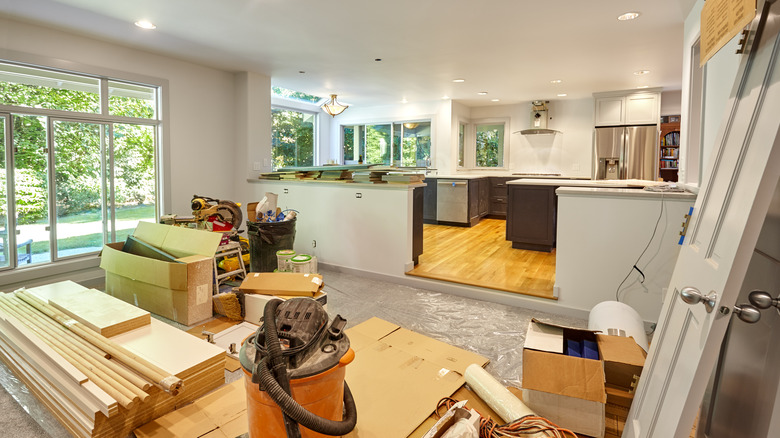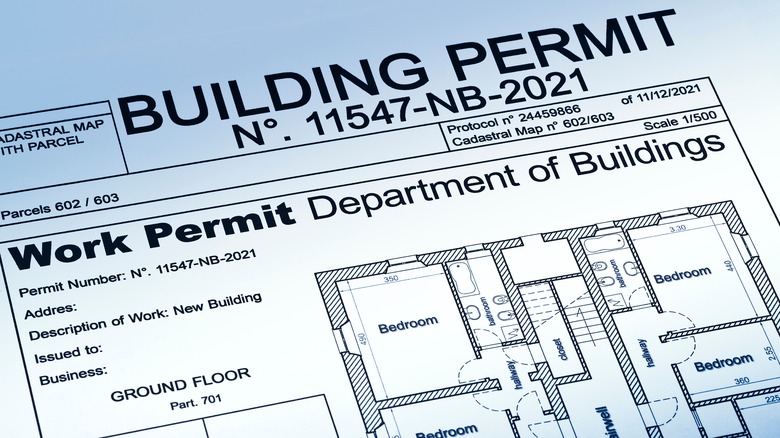Why It's Important To Ask About Renovations When Touring A Home
When you're in the market for a new home, it's easy to walk into a house that's been staged like a pro and get caught up in the dream of living there. However, it's important to go into open houses and home viewings ready to ask important questions. Though you may naturally focus on the function and aesthetics of the home, it's vital to inquire about how it got that way. When touring a home, ask about what renovations have taken place during the seller's ownership so you know exactly what work was done, when it was done, and if proper permits were taken out. Knowing these things can clue you in to any number of potential issues you could face if you buy the house.
When you hear a renovation has taken place, one of the best questions to ask yourself may simply be "Why?" Consider why the seller felt it was necessary to perform the renovation, and then ask them. Sometimes the answer makes a lot of sense. Installing new windows or doors, putting on a new roof, or updating an old kitchen can certainly increase a home's value and bring in a higher price for the seller. However, sometimes the renovation's purpose may be a little less clear.
When renovations cover up a problem
Renovations done before a house is placed on the market can sometimes mask underlying issues. Sometimes the repairs are small and seemingly innocent, like new paint or flooring, yet those actions could potentially be concealing leaks and structural issues. Consequently, it's a good idea to ask the seller for a list of renovations and have your inspector look at those repairs with a critical eye. Renovations that were done to address specific problems, like a leaky basement or foundation issues, might not have corrected the underlying cause, like a tree outside whose roots are growing into the pipes. When asking about the reason behind past renovations, ask if the root cause was addressed.
It's important to assess the workmanship, too. Try to find out if the renovations were DIY projects, which may mean that less than optimal materials were used. The quality of materials used in renovations directly affects how long the repair will last, as well as if it is up to par. Cheap materials might need earlier replacements and may cause issues like uneven flooring, leaks, and doors not closing correctly. All of this can lead to future expenses, not to mention cause frustration.
Ask for permits and the contractor's name
You can also go a step further and ask for the name of the contractor or other professional who performed the renovations. This is vital because you want to make sure that licensed professionals did the work and followed standard safety protocols, particularly when it comes to electricity and plumbing, as well as the building's foundation.
Another consideration is that you will want to have the proper renovation permits available if you buy the house since renovations often require permits to ensure they are done to code. A seller who can't produce permits is a major red flag and suggests that either no permits were taken out, or the people who did the renovation were not licensed experts in the field and may have done shoddy work. That can result in safety issues and future problems with zoning or local laws. For example, an addition to a house may actually be in violation of local building codes, and that can be a problem for you down the line if you take over ownership. Always ask for documentation of permits obtained for any major renovations.


